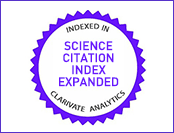| Neural Mechanisms of Discogenic Back Pain: How Does Nerve Growth Factor Play a Key Role?. |
|
Yasuchika Aoki, Seiji Ohtori, Koichi Nakagawa, Arata Nakajima, Gen Inoue, Masayuki Miyagi, Kazuhisa Takahashi |
1Department of Orthopaedic Surgery, Toho University Sakura Medical Center, Japan. yasuaoki35@fc4.so-net.ne.jp
2Department of Orthopaedic Surgery, Graduate School of Medicine, Chiba University, Japan. |
|
|
|
|
|
| Abstract |
|
It was reported that nerve fibers were present in the inner part of lumbar intervertebral discs from patients with discogenic pain. Because there are no nerve fibers in the inner part of annulus fibrosus in normal condition, this finding suggests nerve ingrowth into the disc may be a cause of discogenic pain. Disc degeneration is often asymptomatic, thus, to understand the differences between symptomatic and asymptomatic disc, it is necessary to understand the pathogenesis of discogenic pain. We recently revealed that over 90% of the nociceptive dorsal root ganglion (DRG) neurons innervating the disc are sensitive to nerve growth factor (NGF), which is related to inflammatory pain. This indicates that discogenic pain is closely related to inflammation and NGF may play a key role. The increase of inflammatory mediators in symptomatic discs has been reported; we therefore studied the effects of disc inflammation and found that it induces sensitization of disc-innervating neurons and nerve ingrowth into the disc.
More recently, it was shown that annular rupture induces nerve ingrowth, an increase of inflammatory mediators in the disc, and upregulation of calcitonin gene-related peptide, a pain-related molecule in DRGs. These findings led us to believe that annular rupture triggers inflammation and nerve ingrowth, inflammatory mediators then further promote nerve ingrowth into the disc and sensitization of disc-innervating neurons, and discogenic pain finally becomes chronic. NGF, found in symptomatic discs, may act as a key factor in generating chronic discogenic pain by sensitizing disc-innervating neurons and stimulating nerve ingrowth into the disc. |
| Keywords:
Discogenic pain;Dorsal root ganglion (DRG);Intervertebral disc;Nerve growth factor (NGF);Disc degeneration |
|













































